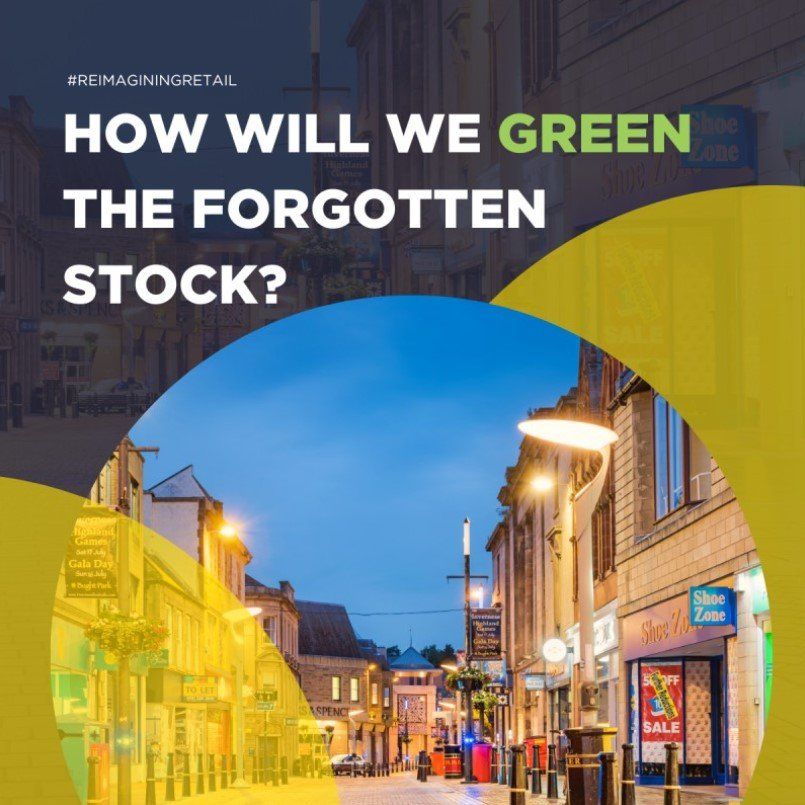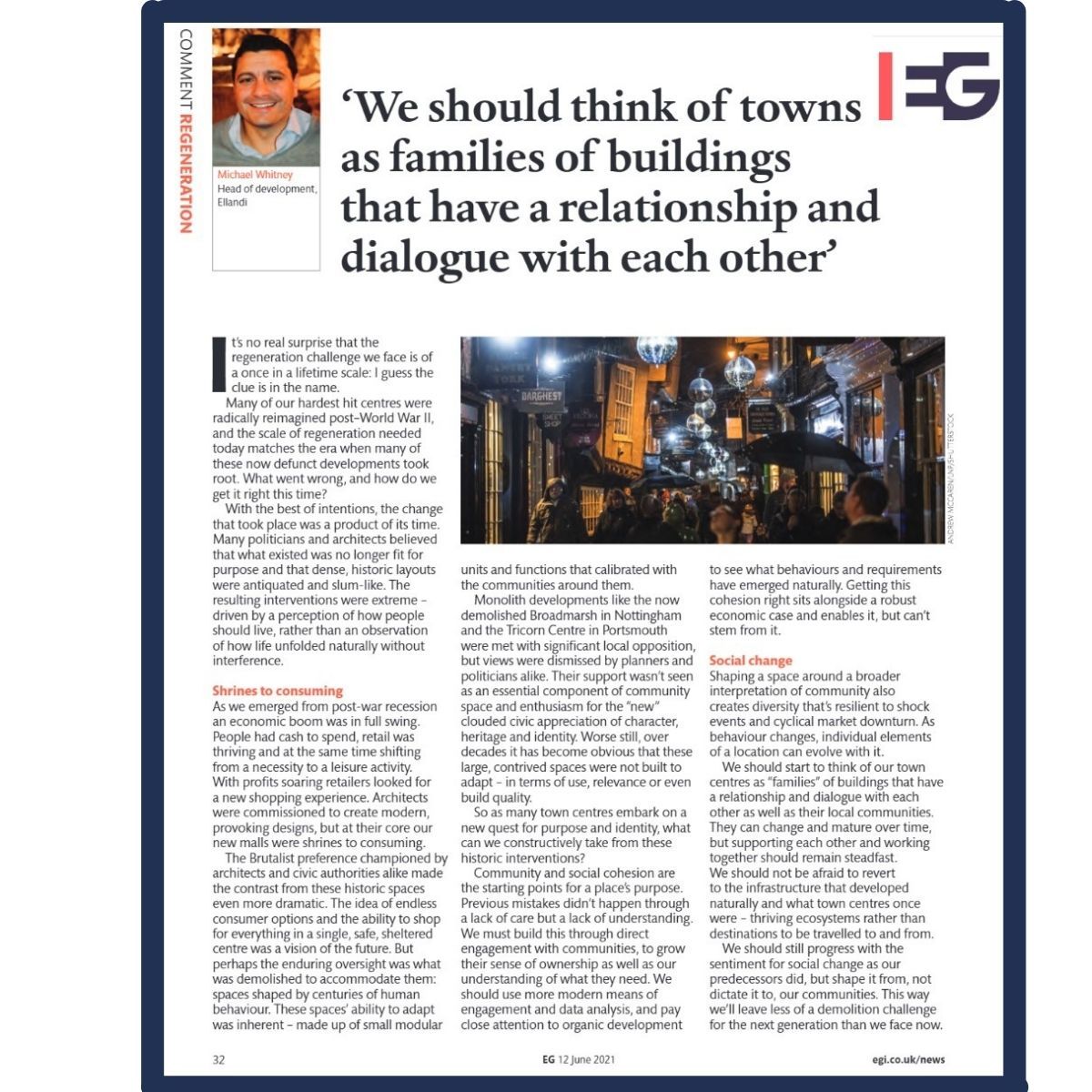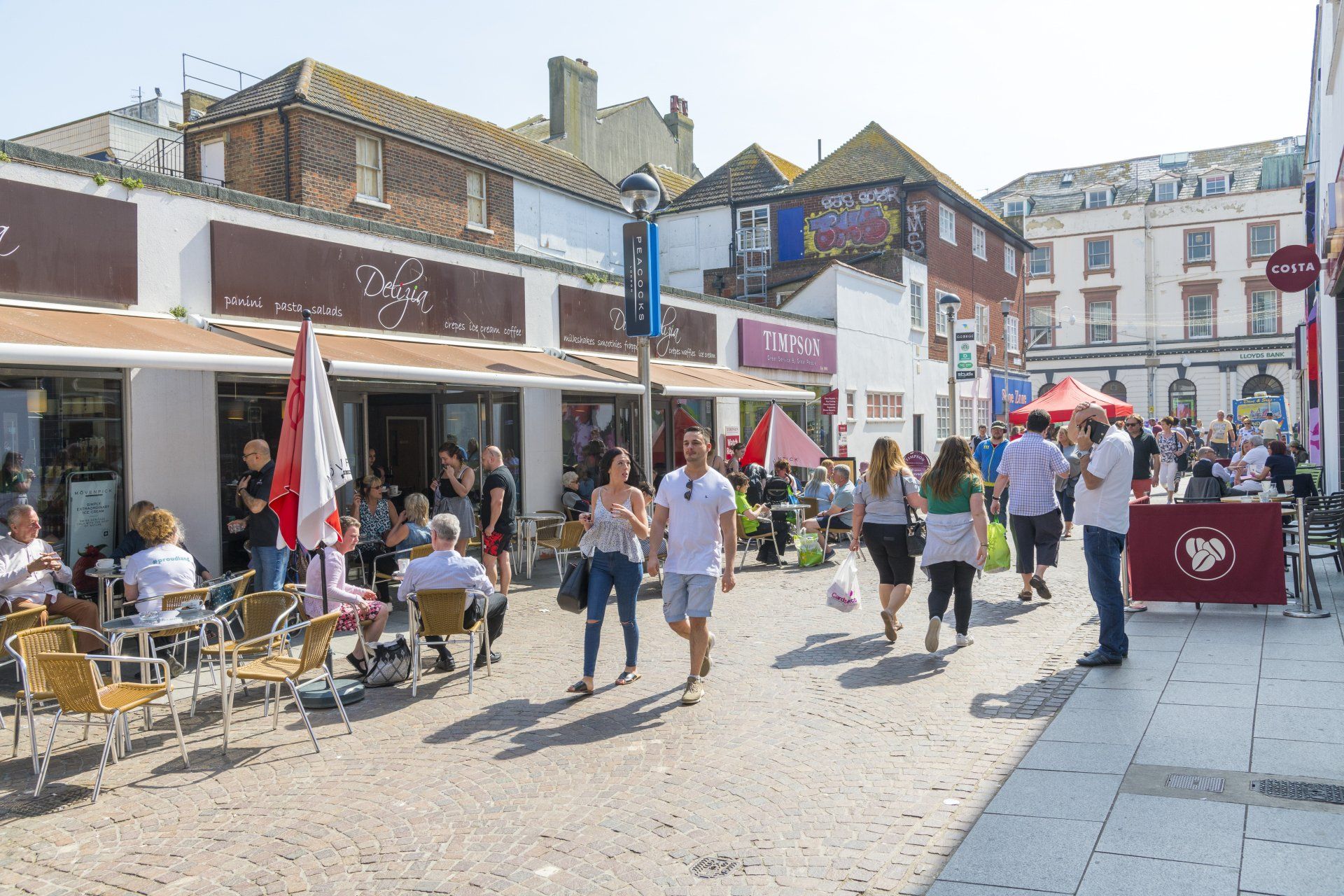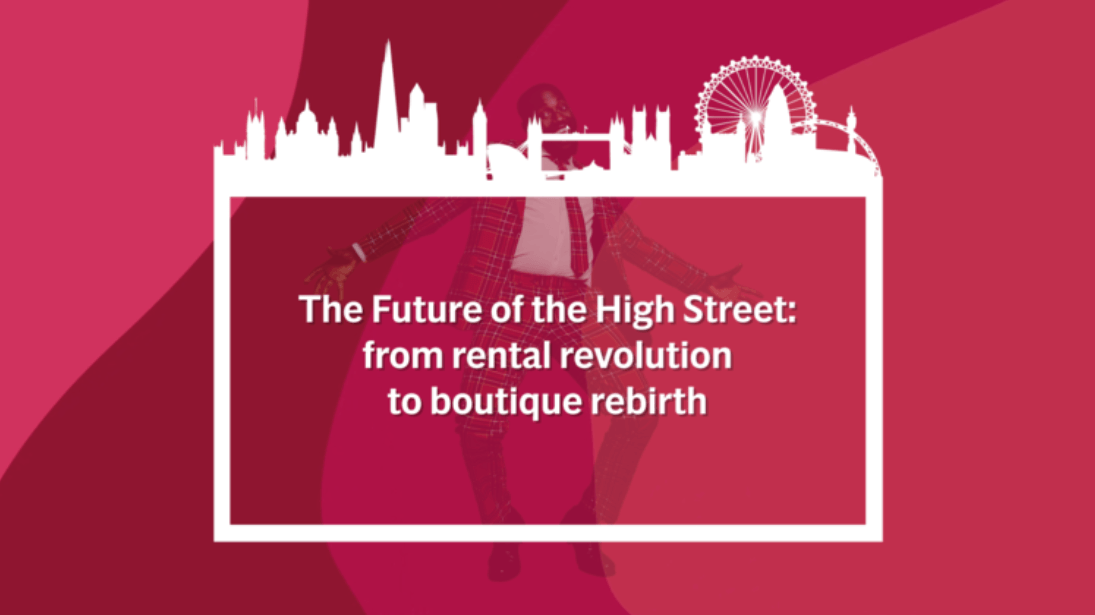
0207 016 3270
contact@ellandi.com
NEWS & INSIGHTS
Sharing Ideas
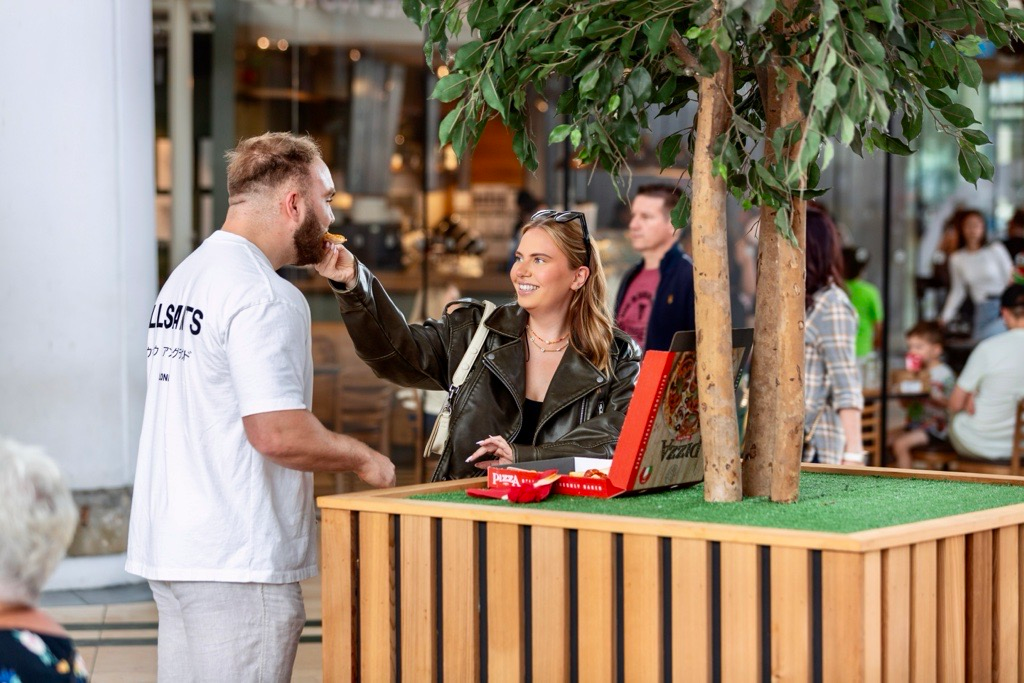
We've taken a unique approach to reinvigorating space at Midsummer Place, our destination shopping centre in Milton Keynes. Using the light filled area within the centre, we installed eight food and beverage pods offering a range of world cuisines for shoppers and visitors to enjoy. This open air feel with wooden picnic benches gives the impression of being outside and has been a real success in adding back a vibrancy to the shopping centre, not only encouraging dwell time but creating a real connection with local businesses and visitors alike. 'We wanted to create dwell time in the Boulevard, rather than it just being a space shoppers passed through' says Tom Ellams, Senior Asset Manager, talking to Retail Destination on the challenges and vision for Midsummer Place.

Frasers Group's Sports Direct and Lane7 will be the latest new additions to the line at Midsummer Place in Milton Keynes, set to open in 2024 / early 2025. Sports Direc t is a leading retailer of sports and fitness with stores across the UK and internationally. This 50,000 sq ft store will offer the world’s biggest sports and lifestyle brands across footwear, clothing, and equipment, and the store will also feature more brands from Frasers Group’s ecosystem including USC, Evans Cycles, and GAME. Lane7 Ltd will occupy circa 40,000 sq ft which will see the company’s 18th opening in the UK. Both brands will be in the former Next Beauty & Home unit across three floors and join other well-loved brands and retailers that have historically made Midsummer Place the ‘fashionable quarter’ and a first choice for customers looking for the latest trends and aspirational shopping. Lane7 will occupy the basement floor. Simon Anderson, Asset Management Director at Ellandi, said, “Securing both Frasers Group’s Sports Direct, and Lane 7 for Midsummer Place demonstrates both confidence in the market as well as highlighting the opportunity at Midsummer Place. These brands will complement the recent re-development of The Boulevard F&B quarter. We are transforming the centre, and in addition to the physical changes we are curating a very attractive tenant mix. This brings us one step closer to realising our vision to create a high-end, quality destination.” The strategic collaboration marks a significant milestone for Midsummer Place, reinforcing its commitment to creating a destination that is innovative with a diverse offer in the heart of Milton Keynes city centre. These major signings follow the recently completed development of the popular Boulevard which has seen eight independent luxury cabins open to create a food court that provides cuisines from around the world coupled with recognised F&B occupiers Leon, Starbucks, and Pret A Manger. A Frasers Group spokesperson commented: “We are pleased to be opening a new, elevated retail destination in Milton Keynes’ Midsummer Place. The Sports Direct store will give customers access to the world’s best sports and lifestyle brands, as well as bring other brands from the Group’s ecosystem, including USC, Evans Cycles, and GAME, to the location.” Gavin Hughes, Managing Director at Lane7 added, “This will be our biggest Lane7 to date and we can’t wait to come to Midsummer Place, bringing our unique brand of entertainment and hospitality to Milton Keynes.” Midsummer Place opened in 2000 and currently includes retailers, BOSS, Zara, Michael Kors, Tommy Hilfiger, Victoria’s Secret, Hollister, Superdry, New Look, Tesla, LEGO®, and Apple, among others. Further information, including timings, are expected to be announced in the coming months.

Backlot Imax Cinema will be opening at Houndshill Shopping Centre next month. Located in the brand-new extension of the Centre, the cinema, will open on 22 nd March, and features one of the largest IMAX screens in the North West, measuring a massive 10.85m high and 19.87m wide. Complementing the big screen, cinema goers will be able to enjoy The Backlot’s 100-seater diner serving fresh burgers, hotdogs and wings, along with a delicious range of desserts, including American style pancakes, indulgent sundaes and thick milkshakes. The Backlot has been designed to create an innovative arts and entertainment hub for both the local community and Blackpool visitors. It will be the new place in town to host events, from corporate conferences and birthday parties to comedy nights, live gaming tournaments and local community meet ups. Building on Blackpool’s long history of picture houses, and reigniting the early evening economy, this new extension of the shopping centre will increase footfall and have a major impact on surrounding businesses. Tim Cornford, Head of Asset Management at Ellandi says, “This new opening of IMAX cinema is part of the exciting regeneration plans for Blackpool. The regeneration of Blackpool town centre is a great example of public/private partnership working at its best. Our vision is to transform Blackpool’s shopping and town centre into a sustainable and thriving destination to reflect the needs and wants of residents, shoppers and visitors. The completion of phase 2 has created over 100 new jobs within the local area and it’s anticipated to contribute to an additional 1.2 million shoppers and visitors to Houndshill Shopping Centre.” Councillor Mark Smith, Blackpool Council’s Cabinet Member for Levelling Up – Place, adds: “We’re delighted to see this ambitious project come to life. Welcoming IMAX and The Backlot Cinema and Diner to Blackpool will be a major draw for residents and visitors to the town centre, with the new multi-media cinema complex providing a brand new state-of-the-art cinematic experience for all ages. For the town centre to prosper we must continue to provide new reasons to attract residents and visitors, whilst extending visit time into the evening - creating entertainment and leisure choices the whole family can enjoy. A destination for premium entertainment and events is a key part of a much wider plan to regenerate Blackpool town centre, with aims to boost the economy, create more local jobs and provide more things to see and do for locals and visitors alike.” At The Backlot, visitors will be able to experience the latest Hollywood releases, arthouse titles, event cinema and past big screen favourites. The Easter holidays will be a cinematic feast, featuring upcoming big screen hits such as Ghostbusters: Frozen Empire, Kung Fu Panda 4 and special 60th anniversary screening of Mary Poppins. The cinema will be equipped with IMAX ’s most advanced theatrical experience, IMAX with Laser. Immersive by design, IMAX with Laser has been developed from the ground-up to deliver crystal clear, lifelike images and precision audio for a moviegoing experience unlike anything else. Tickets are now on sale to experience Denis Villeneuve’s much-anticipated sequel, Dune: Part Two.
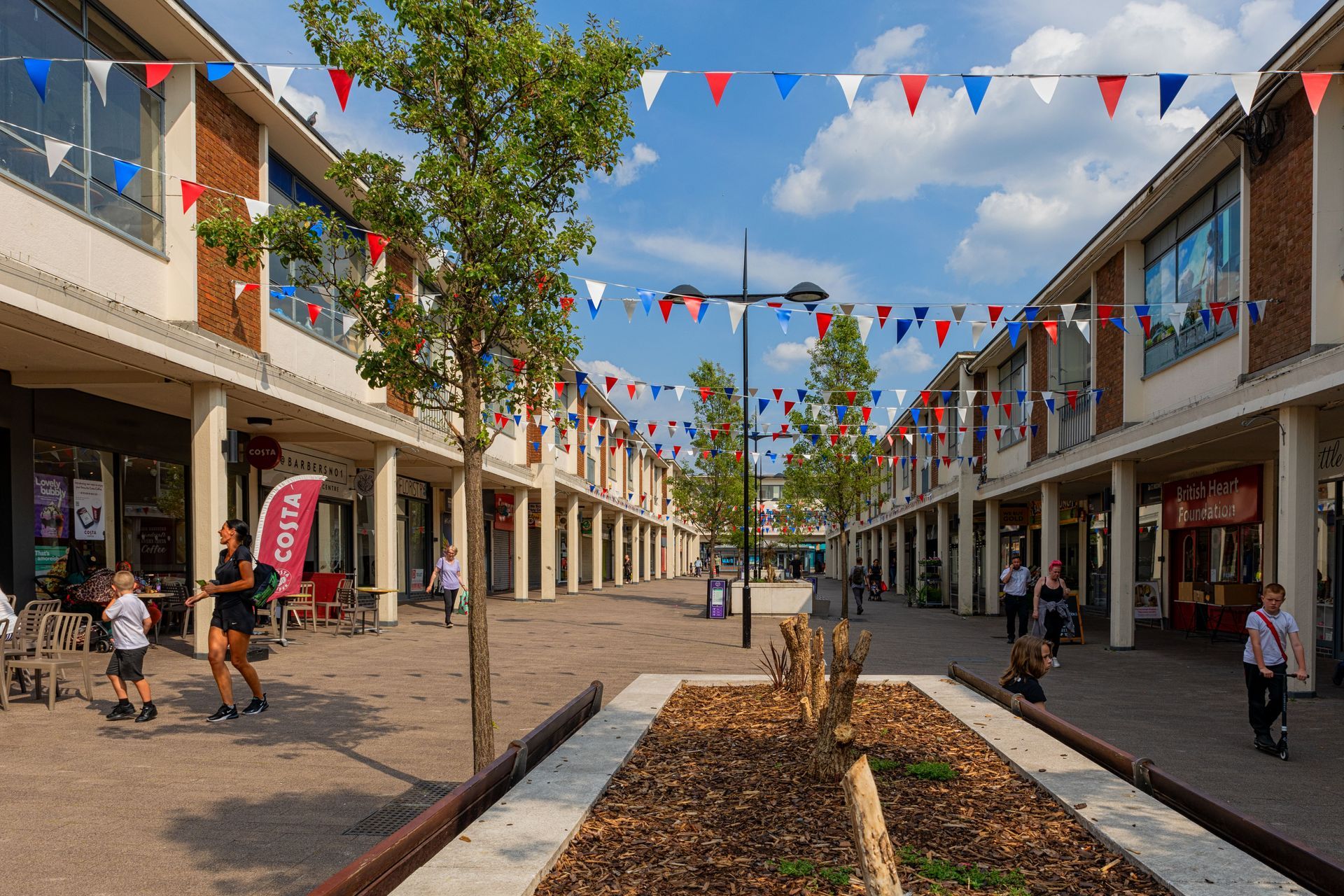
Kirkby Shopping Centre, our expansive retail scheme in Knowsley featuring 96 units across more than 324,000 sq ft, proudly announces twenty-three completed deals in 2023, contributing to the ongoing revitalisation of the town. The new additions complement Knowsley Council’s regeneration plans for Kirkby, solidifying its position as a thriving commercial destination. This achievement highlights the commitment of Kirkby town centre to attract diverse businesses, fostering a dynamic retail environment for residents and visitors alike. The recent influx of businesses aligns seamlessly with the town's ongoing regeneration efforts, with more ventures set to open their doors in the coming weeks and months. Since Pure Gym opened its doors, new businesses enhancing Kirkby's retail landscape include The Coffee House, Shush, a ladies fashion store, Love Nails, Kettle Watch Repairs and Kirkby Blindz, a local homewares business. These exciting additions contribute to the diversification of offerings, providing a well-rounded shopping experience for the community. Looking ahead, Kirkby Town Centre is preparing for the opening of IntoUniversity , a valuable education service offering support and development opportunities for children and young people aged 7 to 18. This year the centre will see Fun1st Entertainment open which will occupy a two-storey building and transform the space into an inflatable play park on the ground floor with a food and beverage offering above. Harry Jeffery , Associate Asset Manager Ellandi, added, “We are delighted to welcome more new brands and concepts to Kirkby Town Centre as we continue to use our expertise to diversify the offer and provide a core destination for its customers. Our commitment to enhancing the shopping experience and our ongoing efforts to bring fresh businesses to the town exemplify our dedication to the local community and the town's future growth.” Councillor Tony Brennan, Knowsley Council’s Cabinet Member for Regeneration and Economic Development, added, “I’m delighted to welcome these new businesses to Kirkby Town Centre and bring empty units back into use. Residents and visitors asked for more choice in terms of retail and that is exactly what we are delivering. We are continually promoting Kirkby Town Centre as a great business location, and I’m glad to see that many businesses agree with us. It’s great to see Kirkby so vibrant and I’m looking forward to these latest businesses opening their doors in the town.” We have been successful in securing multiple new leases throughout 2023, demonstrating our commitment to enhancing shopping experiences for our centres’ valued communities. We remain dedicated to looking closely at the performance of each asset from every angle and make decisions based on data from our R&A department that inform strategies on tenant mix, catchment, demographics, footfall and place-making. Our objective is to drive transformational change that aligns with local regeneration strategies.
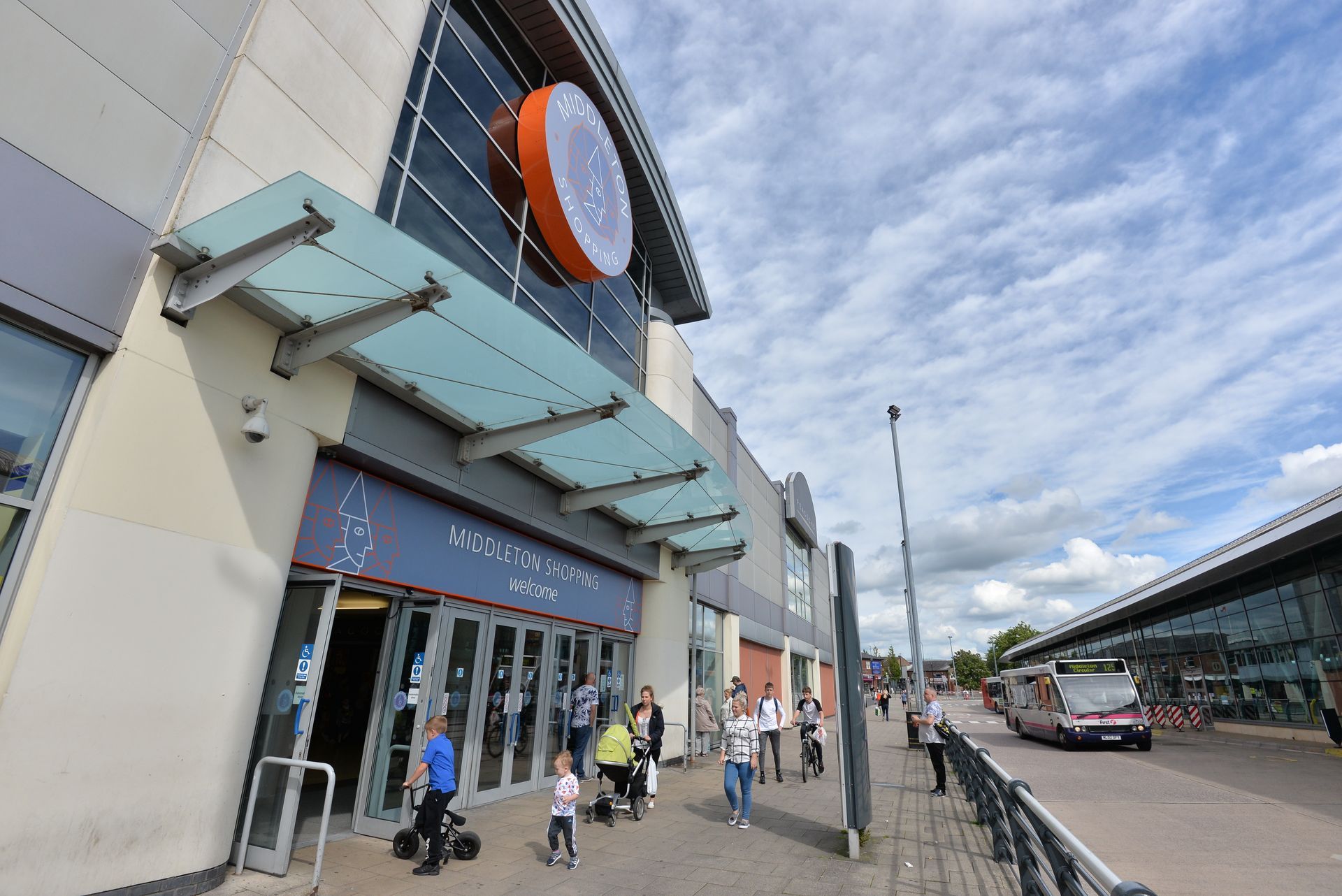
Middleton Shopping Centre has experienced a remarkable recovery post-Covid-19, surpassed pre-pandemic footfall levels, and witnessed increased consumer confidence. This case study explores the factors contributing to this resurgence and the impact on tenant trade and community engagement. Footfall Recovery: The annual footfall statistics indicate a notable increase in visitor numbers, with 2023 recording 3,300,052 visits compared to the pre-pandemic high of 2,479,089 in 2019. This surge can be attributed to strategic asset management, through careful curating of tenant mix, the introduction of major occupiers like JD Gym/NHS, and a significant change in the car park system in August 2023, resulting in over 5,000 additional vehicles using the car park weekly. The shift to a 5-hour free car park has been a key driver in the increased footfall, positively impacting tenant trade. The rise in foot traffic has led to a substantial boost in Costa's turnover, exceeding a 30% increase in turnover from 2017 - 2023. Capital Investment Projects: The shopping centre has seen a total investment of £3.25 million, directed towards crucial projects such as roof replacement, mall refurbishment, and new WC facilities. These projects have not only enhanced the overall aesthetics but also reduced the retail footprint by approximately 20%. Furthermore, new planning approved in 2023 aims to redevelop external vacant units, enhancing the facades and adding car spaces. Community Projects: Inspire Middleton / Lighthouse Project , a community anchor organisation within the shopping centre, is pivotal in supporting various charitable initiatives. Occupying 16,910 sq. ft., it offsets a significant portion of occupancy costs. Highlights from Inspire Middleton's Community Initiatives include: Running 5500 sessions/activities and groups supporting people needs, including employability skills, health and wellbeing support, leisure interests and activities. Tackling Food poverty and insecurity by the provision of 80,000 meals, via the Foodbank, supporting 2,989 local adults and children, and another 45,600 meals supporting 813 people through its Pantry. Tackling debt and financial struggles securing debt relief totalling £582,267 for 484 clients using the FCA registered Lighthouse Money Advice service. Tackling Digital exclusion offering free internet access and providing over 550 sessions offering digital skills support for individuals who have never used a computer, who are looking for work, or are digitally excluded. Improving employability skills assisting 41 people in improving job-hunting skills, and 120 attendances for activities related to job search and workplace skills, and CV appointments. Supporting families via an annual Christmas Toy Appeal providing toys for over 190 children from 89 local families.
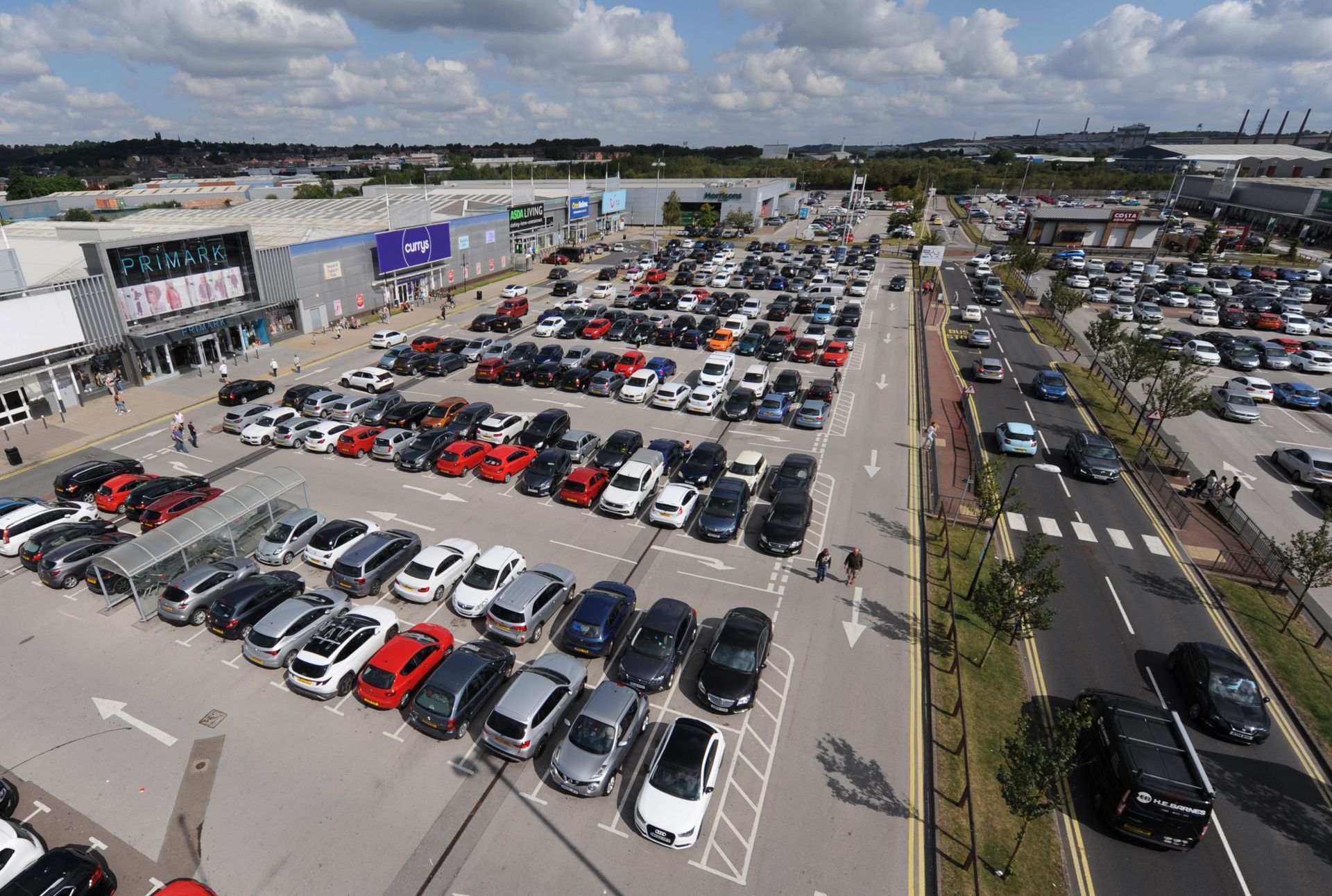
We are delighted to have delivered an exit strategy on behalf of the Lenders and Trustees of the landlord for Parkgate in Rotherham, the UKs second largest retail park. Ellandi was appointed in 2021 for its experience in strategic asset management and has enhanced and built upon its occupier line-up as well as exploring more alternative concepts to increase Parkgate's offer in attracting additional visitors. The key to the strategy, as part of curating its tenant mix, was to find solutions for three large vacant units that had been unoccupied for five or more years; 50,000 sq ft unit to Frasers, 30,000 sq ft to Wren Kitchens and a 30,000 sq ft letting to the largest Poundland in the UK. Since its appointment, Ellandi has completed over 70 leasing and capex activities. Parkgate Retail Park is located in Rotherham, a large town in South Yorkshire benefitting from strong road and transport connections, with the M1 motorway located c.3 mile to the west, and the M18 motorway located c.5 miles to the east, linking with Doncaster and East Yorkshire . Thanks to Fladgate , Staunton Whiteman , Smith Young , ESH and Ashdown Phillips . Read full article in React News .

The Revo Awards, held last night at one of London's newest development and regeneration spaces, Battersea Power Station, honour and celebrate those who are adapting and leading the way forward. At it’s core, The Revo’s is all about celebrating excellence and recognition for the outstanding people, places and spaces who have demonstrated excellence in the built environment. Among stiff competition, Christina Beggan, Director Asset Management, is this year's new Rising Star. She is part of a new generation of asset managers; young, highly dynamic, and commercially minded. She can discuss technical details and carry out in-depth financial analysis in addition to developing new space, curating the ideal tenant mix and leasing shops. Christina led the unlocking of Bradford town centre, she took on the management of The Broadway with a vacancy of 15%/ 85% occupancy (now 100%). Masterminded a deal whereby Primark relocated to Broadway into a new £5.5m development within the old Debenhams building; this facilitated a contribution towards the Council buying the failing Kirkgate to enable wider town centre regeneration. This was a transaction that has been talked of for years. Westfield & Mark group failed to achieve it in over a decade. It only took Christina 6 months which is a remarkable achievement; through thorough and careful analysis, myriad relationships, and persuasion, she was determined to transform Bradford and she made it a reality. But she isn’t just a problem solver and a deal-doer. Having worked her way from a junior property manager at Workman to recently promoted asset management director at Ellandi, Christina has a strong work ethic, is highly driven and has an eye for detail. Christina led a team that developed a business plan identifying new business opportunities for Ellandi to expand its platform into Ireland. Through market research, stakeholder identification, relationship building, financial acumen and confidence, she presented a strong business case to potential investors, resulting in new and ongoing acquisition and asset management opportunities in a fresh market. Christina is a trusted adviser to investors and various banks on distressed loans and new lending opportunities. Advising a debt fund on the financing of a retail park and advising a bank on the management and sale of a struggling shopping centre. She was instrumental in developing a detailed month-by-month cash flow model to manage client finances during the 2020-21 lockdown when rent and service charges ceased flowing. She is also currently providing strategic advice to the senior leadership team of a Local Authority regarding the potential forfeiture of a shopping centre head lease opposite a hostile long leaseholder with the aim of achieving smooth and efficient onboarding and asset management deliverables. Christina has become an expert in the technical arena of CVA’s and restructuring plans. She is part of the BPF Insolvency Committee, involved in assessing the industry responses to CVA/Restructuring proposals from New Look, Clarks, The Restaurant Group, Aspinal, Moss Bros, Café Nero, Select, Pizza Hut, Travel Lodge, NCP and the recent Wilko consultations. She regularly consults with Government and insolvency practitioners to improve fairness and transparency for landlords affected by occupancy insolvency. A regular speaker on this topic, she’s become an expert in this area and is one of 5 female members representing an overall group of 25 comprising private equity investors, property companies, solicitors, accountants, and insolvency practitioners as well as representatives from the Insolvency Service and Government. Christina is an active member of the Real Estate Women group, regularly contributing to round table discussions focusing on important issues, including the gender pay gap; diversity and inclusivity within the industry as well as championing these initiatives internally. She’s making her mark and forges relationships and shares ideas with her peers. Despite a busy day job, social interaction, inclusivity, and diversity is high on the agenda for Christina. She leads Ellandi’s social committee, and devises and delivers a successful programme of quarterly events, which includes partnering with a variety of market contacts to deliver industry learning and development, as well as fun team-building activities. Christina led Ellandi’s summer internship programme which addresses the undeniable barriers that exclude some members of society from entering the Real Estate profession. She coached, mentored, and guided two bright and enthusiastic interns and provided opportunities for them to experience a role in property. Activities included hosting meetings, attending site visits, drafting reports, attending workshops, delivering presentations, meeting clients, and experiencing all aspects of day-to-day life in asset management. Christina oversees social impact strategies, ensuring plans are implemented and adhered to. She leads the on-site teams to implement various environmental initiatives such as reduction in energy consumption, waste management and improvement of recycling performance and rainwater harvesting, resulting in numerous Revo Green Apple and Gold Green Apple awards. Christina recognises that asset managing a successful shopping centre is much more than just running the numbers. Her values are closely aligned with Ellandi’s and she is actively demonstrating her commitment to create the UK’s most inclusive and sustainable communities. Community engagement, sustainability, city-wide events, and supporting social enterprise initiatives are part of her approach to ensuring that the offer is truly diverse and inclusive. A natural leader with a passion for making a difference, she motivates, drives excellence, and collaborates with cross-functional teams and diverse stakeholders to deliver real results. This is what a modern asset manager looks like. Highly specialised knowledge, focus on detail and quantitative analytics and the personality and commerciality to build relationships, create trust, provide advice, and make deals happen. Very few of Christina’s peer group have her breadth of knowledge and experience across property and asset management nor her technical skills. Amazing what a down-to-earth girl from Belfast has achieved by the age of 33. She is redefining what the standard and skills look like within the retail assets management community. To recognise the contribution that Christina makes to the Ellandi business, the communities in which we serve and the wider real estate family, in June 23, Ellandi promoted Christina to director in the asset management team; the youngest director in the company.
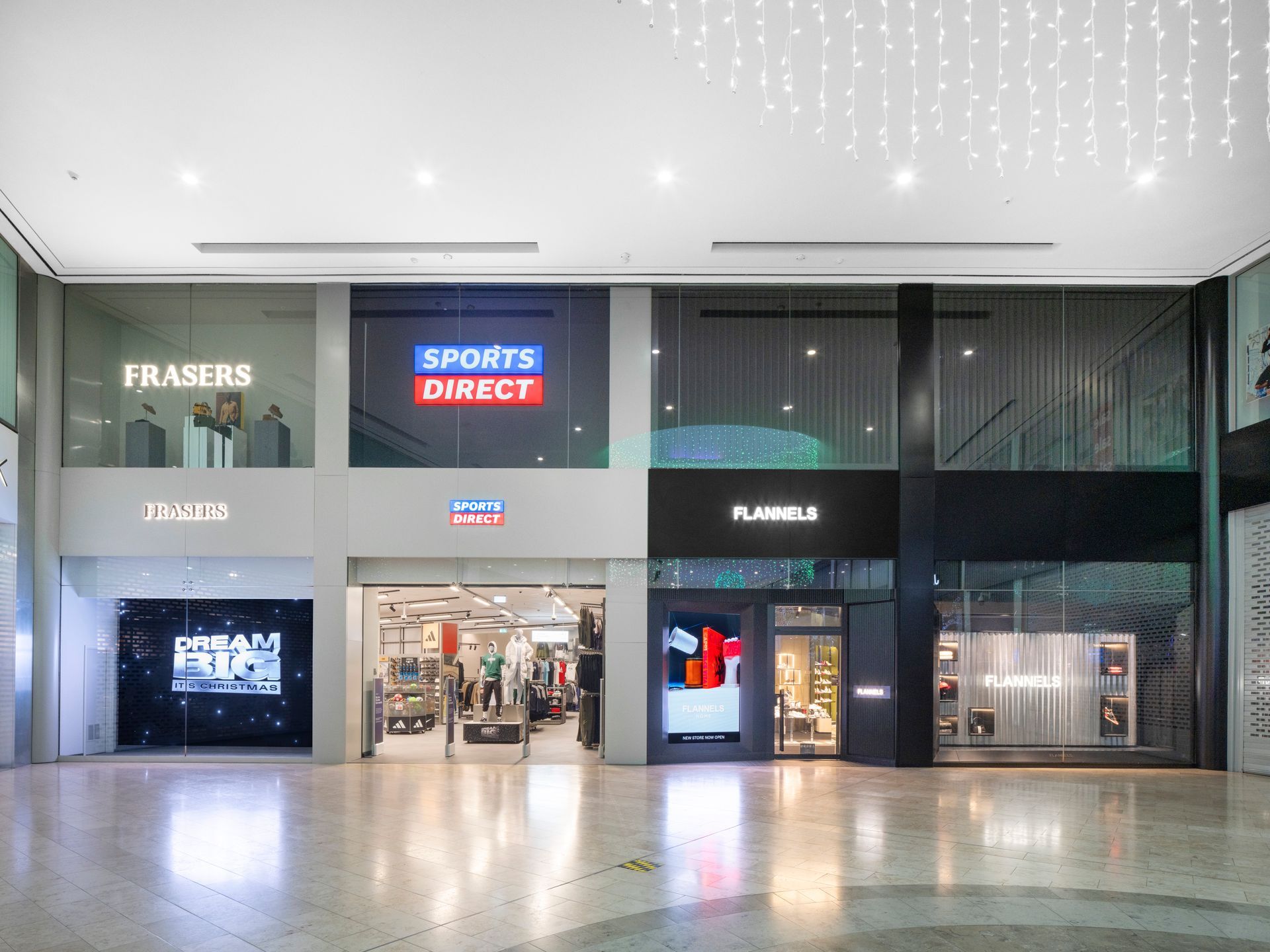
Houndshill Shopping Centre welcomed Frasers, Flannels and Sports Direct to its retail line up. Repurposing the old Debenhams unit is truly transformational for Houndshill and Blackpool. Blackpool Makes it work sat down with Tim Cornford , our Head of Asset Management to find out more about their recent achievement in Blackpool, the uniqueness of the town and beyond. Ellandi are working within Blackpool to help manage the Houndshill Shopping Centre and other retail assets in the town centre to make a meaningful impact across the whole town, create more economic opportunities and jobs for local people.

Three of our shopping centres collected Green Apple Environment Awards at the Houses of Parliament last week! The Green Apple Environment Awards were established in 1994 as an annual campaign to recognise, reward and promote environmental best practice around the world. The scheme was the first to be accredited as an official feeder scheme into the European Business Awards for the Environment and it is now the only official feeder scheme into the Green World Awards, which are held in a different country every year. Recognising the environmental impact of discarded clothing, Middleton Shopping Centre set up Wrap Middleton with local charities to effectively recycle warm clothing to help vulnerable community members while mitigating clothing waste. Birchwood Shopping Centre's 'Back to Basics' initiative in collaboration with B&M Waste, enhanced their recycling efforts and sustainability to achieve their goal of zero waste to landfill, along with monthly waste reporting, tenant waste monitoring, book donation recycling, plastic recycling, increased food bin use for anaerobic digestion, and the adoption of environmentally friendly cleaning machinery. The latest energy reduction project at the Swan Centre in Eastleigh delivered some amazing results reducing total energy consumption by 29.7%.
Recent News
Research & Insights
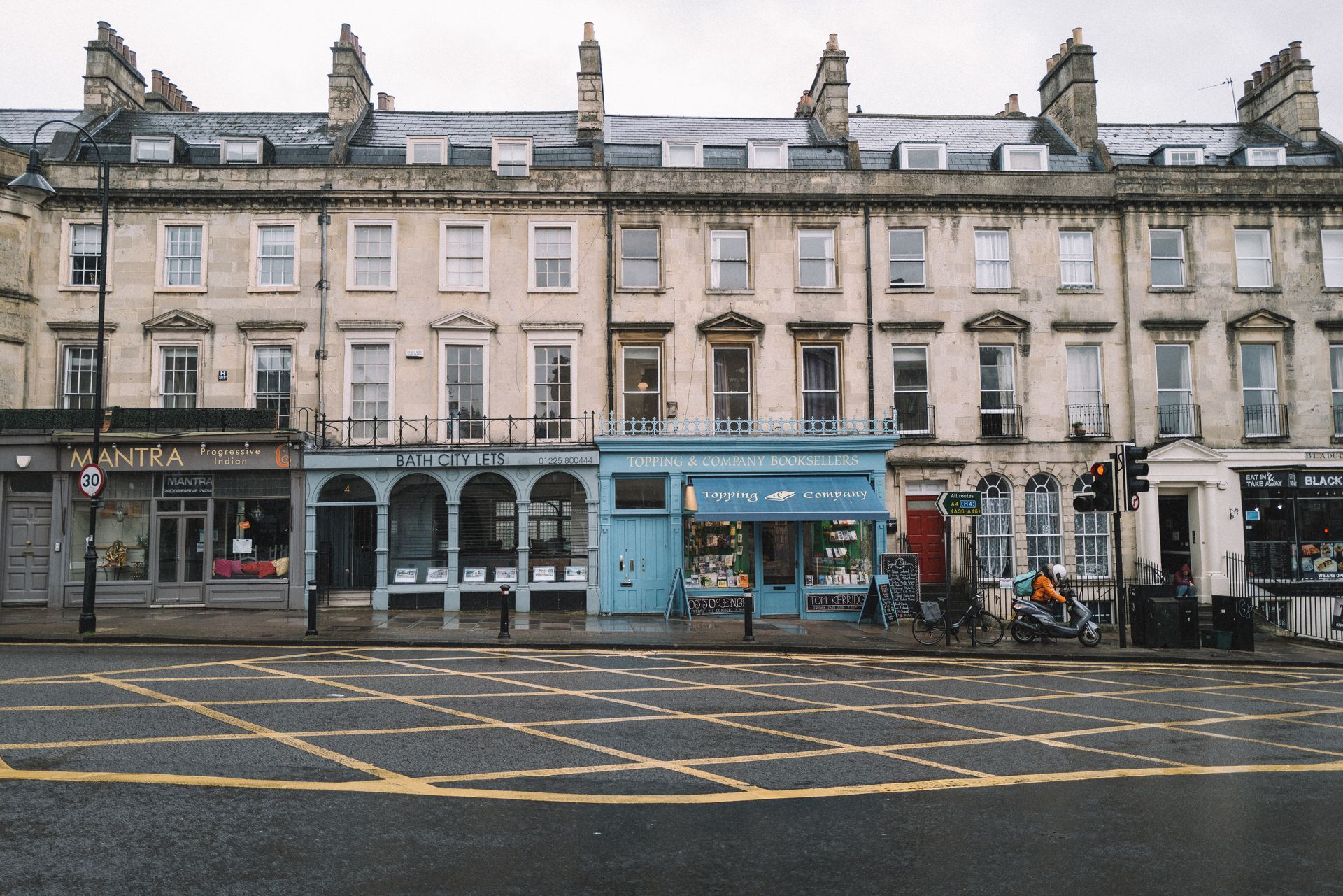
As Chair of High Streets Task Force, our Co-founder Mark Robinson is delighted to contribute and support #TakeBackTheHighStreet campaign. The UK's high streets are the beating hearts of communities and they have reached a critical tipping point. Three decades of decline because of the growth of out-of-town retail; the rise of megastores; and more recently a seismic shift towards online shopping, has left the high street vulnerable. Over reliant on retail, the Covid-19 pandemic has accelerated the decline. We are perilously close to losing these community spaces that are vital to local economies, community cohesion, civic pride, cultural identity, and local distinctiveness. A new vision for our high streets is urgently needed. This new report from Power to Change provides a snapshot of expert opinion on the state of the high street, alongside policy recommendations for the next government to help create community-powered high streets. Find out why government intervention is need to help reimagine high streets and how community business is helping to revitalise town centres. Read the full report here.

Samantha Fox , Head of Research and Analytics, Ellandi comments for the Evening Standard on the value of increasing creative leisure offerings in town and shopping centres. “Not only does encouraging people to be more active have a positive impact on their health, but it also aids the performance of shopping centres." “Research across our portfolio suggests shoppers who include leisure activities as part of their trip visit 20 per cent more frequently than average. In addition, nearly half of those aged under 30 that we interviewed wanted more leisure facilities within their local centre.’’ Read the full Evening Standard article here .

LATEST figures from Ipsos’ Retail Recovery Index show Merry Hill has seen one of the most impressive recoveries in the three months since non-essential retail re-opened on Monday April 12. Merry Hill shopping centre was ranked as one of the leading retail destinations over the last three months, as shoppers continue to visit local high streets and centres rather than visiting larger cities. Salisbury beat off competition from Harrow and Worcester to be ranked as the high street seeing the best recovery, with Merry Hill coming in at number four. Central London locations suffered the worst footfall comparisons, with the City of London down -68.9 per cent and the West End -49.9 per cent when compared to the same period in 2019, and nationally footfall was down by -34.6 per cent on its 2019 level over the same period. Oliver Hillier, senior retail analyst at Ipsos, said: “Our Retail Recovery Index shows that, after a difficult period of lockdown, shoppers are keen to return to high streets. The North East and East Midlands have seen a strong recovery, particularly driven by footfall in cities such as Newcastle-upon-Tyne and Derby. “Central London destinations continue to see footfall lag behind the rest of the country but we expect to see this situation improve as leisure venues reopen and more workers return to offices. "The success of smaller cities like Salisbury also highlights that many shoppers have continued to visit stores close to their homes, rather than visiting major cities such as Birmingham, Manchester and Leeds. However, the attributes that made these cities shopping destinations remain as we expect to see their footfall levels rise over the coming months.” The Retail Recovery Index track footfall levels across the UK following the re-opening of non-essential retail on April 12. The data is constructed from the number of shoppers entering stores using a nationally representative sample of over 4,000 retail outlets across the UK, excluding the grocery, convenience and minor retail service sectors. As such it is considered to be the only true measure of retail footfall, drawing exclusively on people entering shops rather than shopping centres or walking down high streets.

Fundamentally, the burden of business rates on retail has to be reduced from current levels. The disconnect between rates and rents in the sector is stark: between 2001 and last year, growth in retail rates was more than five times greater than growth for retail rents. Rebalancing can be achieved by reducing the uniform business rate (UBR), revaluing more often, and removing ‘downwards transition’, which is still pegging retail rates to 2008 rental values in many locations. This is really quite striking when you think about it. Research commissioned by Revo confirmed the areas losing out most are actually those the government’s levelling up agenda is supposed to help. The rates rise in the North and Midlands has been almost 12.5-times greater than the rise in rental values, compared to 4.1-times greater in the South. So it makes political as well as equitable sense to truly rebalance the tax. I was privileged to contribute to Revo’s submission to the government’s recent business rates review – including calls for the UBR for retail to be ‘reset’ to 30p, annual revaluations, ditching downwards transition, and reform of empty property taxation to better reflect the realities of the retail property market. Of course, this has a cost. But supplementary tax streams such as an online sales tax, turnover tax or delivery charge could plug the gap. They can also offer a fairer way of distributing the tax burden – allowing the system to evolve with consumer trends and tap into a sustainable revenue stream. Jonathan Cole, Investment Director, Ellandi

The pandemic has accelerated the high street’s decline. Is government support the answer, or does the concept need a wholesale rethink? It was 40 years ago that Coventry band The Specials sang about ghost towns. At the time, the song was seen as a comment on urban decay and deprivation in inner cities. But it could just as well be an anthem for the Covid-19 era. The latest statistics around the high street make for alarming reading. The constant cycle of lockdowns has crippled footfall, which reached an all-time low last May, when the British Retail Consortium reported a 77.8% year-on-year decline. That’s had an immediate effect on occupancy levels. The shop vacancy rate stood at 13.7% in Q4 2020, according to the BRC – 1.6 percentage points higher than the same point in 2019. In essence, the mass closure of non-essential retailers has pushed vast numbers of consumers towards online shopping, and left the nation’s high streets emptier than ever. “What Covid has done is, it’s made 10 years of change happen in 10 months,” says Mark Robinson, chair of the government-commissioned High Streets Task Force. “That is really quite brutal and that’s the reality we find ourselves in now.” Robinson foresees “really tough” times ahead. And food retailers on the high street, although safer than most forms of retail, are by no means immune from the effects of dwindling footfall and boarded-up spaces. Because no one visits a ghost town. But all is not lost. Crucially, Robinson and other experts believe the high streets can still have a viable future if they adapt to the needs of their local communities. So what needs to happen to help the high street get back on its feet? What challenges will it face in the recovery period, and how can it overcome them? And after all this, what will the future high street look like? 13.7% high street vacancy rate in Q4 2020 17.3% shopping centre vacancy rate in Q4 2020 47% increase in number of vacant units in the City of London from 2019 to 2020 68.3% year-on-year decline in high street footfall in February 2021 4.9% decline in retail sales volume in the three months to January 2021 35.2% proportion of spend that went online in January 2021, the highest on record Sources: BRC, ONS Amid all these startling figures, it’s important to note that high streets were facing serious problems well before coronavirus entered the national lexicon. Robinson points to the creation of his task force in 2019, before mass shop closures came into the equation. That came off the back of a landmark report on the high street by John Timpson in 2018, which called for a fundamental change in approach to make town centres “a place people want to be”. And it was hardly the first review to delve into the issue of dwindling footfall and spend. Retail guru Mary Portas penned her report in 2011, which argued that the high street could only survive by “recognising what’s happened and delivering something new”. The pandemic has simply made the problems identified in these reviews even more pressing. “Covid has accelerated what was already happening,” says Bill Grimsey, a retail veteran and high street specialist who has himself written reviews on the subject. The migration towards online shopping is, of course, one of these issues. “We predicted 30% of spend would be online by 2030, and Covid took it up to about 40% at one stage,” says Grimsey. ONS statistics showed online transactions had reached an all-time high in January, when they accounted for 35.2% of all spend And Kyle Monk, director of insight at the BRC, believes that level is unlikely to fall much once coronavirus restrictions are lifted. “They say it takes weeks to form a habit and we’ve had nearly a year of this – for eight months of the last 12, we’ve had some restrictions in place – so this behaviour could be sticky for some time,” he says. If not forever. This new reality has served to highlight another long-standing problem: business rates. The system has long been criticised for failing to recognise the shift to online spend, taxing the retail sector too heavily, and relying on outdated property values. “We’ve been saying business rates are broken for years now,” says Monk. The problem was solved – temporarily, at least – by the government abolishing business rates during the pandemic. That will soon come to an end, though. In the latest Budget, the government said the full holiday would end on 30 June (though there is 66% relief, with a cap, for the rest of the financial year). That retailers will suddenly have to pay rates again, just as they are starting to reopen, could undermine efforts to revive high streets. What’s worse, the planned review of the business rates system has been pushed back from spring until autumn this year – which means there will be a long wait for any real change to the way the tax is calculated. Vivienne King, CEO of real estate company Revo and chair of the Shop Keepers Campaign, is worried. “We’re concerned the review has been postponed, which means retailers will have to wait that much longer to have to seriously consider if they can continue in operation with business rates as they are, or whether we will see a reform that involves a significant cut in rates payable.” A sweeping reform is vital, says King, who points to a survey of 400 property experts and advisers conducted by Revo and Lambert Smith Hampton last year. Half of respondents named high business rates as a key challenge. That was only second to the threat posed by online shopping, cited by 70% of respondents. So under the Shop Keepers Campaign, King is calling for immediate relief in the form of extending the full business rates holiday until September, and keeping rates at just 50% until a wider revaluation in 2023. That is crucial considering the business rates multiplier is 51p in £1. A more realistic number, she says, is 30p. In the longer term, King wants a complete rethink. “What we need is for the government to recognise the stress on bricks-and-mortar operations, and particularly the stress being caused by business rates,” she says. “We need a long-term sustainable reform that would give business a chance in our town centres.” Her calls are echoed by many others in the industry. “Serious steps should be taken to continue the relief indefinitely and move towards levelling the playing field with online retailing,” says Alfred Bartlett, head of the retail & leisure group at property and planning consultancy Rapleys. Looking ahead, he wants to see a comprehensive review of business rates “to try and move away from linking rates to historic rental values, which then apply in vastly different economic climates”. Bartlett believes that change should come alongside incentives to stimulate the recovery of the high street. “I believe incentives should be given to developers to invest in the regeneration, or rather resurgence, of town centres,” he says. He argues those incentives could also extend to startup retailers “in certain key sectors” to give them the confidence to set up stall in town centres. For the moment, the government is simply in crisis mode. In the latest Budget, it unveiled plans to inject cash into the high street through one-off grants and funds. That includes the £4.8bn Levelling Up Fund, designed to support town centre and high street regeneration, and the Restart Grant scheme for businesses most badly affected by Covid-19, which will be available to retailers. Those measures have been widely welcomed – with a caveat. “Positive measures from the Budget include the restart and lockdown grants, business rate holiday and the extension of furlough. These are all bound to help but only in the very short term,” says Keith Hardman, head of development and strategic advisory at commercial real estate company Cushman & Wakefield. “Large as the funding numbers seem and welcome as the investment is, the scale of government financial intervention needs to be considerably greater,” he adds. “The real challenge in too many instances is how to bring about the scale of regeneration needed to arrest the spiral of decline before this becomes irreversible.” On the other side of the coin, Robinson of the High Streets Task Force says the high street can’t afford to rely too heavily on government funding. “What is very clear is we can’t expect government to do all the heavy lifting,” he says. “We have to create an environment where once again the private sector feels more comfortable about investing in our town centres, and we’re not there yet.” What the Government is Doing The government unveiled a raft of financial measures to stimulate the high street in this month’s Budget. These form part of the government’s wider attempts to steer beleaguered town centres through the Covid-19 crisis. So what government help is available? Business rates holiday: Since the start of the pandemic, the government has offered business rates relief to 750,000 eligible retail, hospitality and leisure businesses. The relief has been extended across several consecutive three-month periods. In the latest Budget, Rishi Sunak announced the full holiday would be extended until end of June. But there will be 66% relief on rates until the end of March 2022, capped at £2m relief for non-essential retailers and just £105,000 for essential retailers. Restart Grant scheme: In a bid to help the hardest-hit businesses recover, the Treasury revealed a Restart Grant scheme in the latest Budget. The £5bn fund will offer a one-off cash grant of up to £18,000 for hospitality, accommodation, leisure, personal care and gym businesses in England, and will be allocated based on application. Levelling up fund: The £4.8bn UK-wide Levelling Up Fund was a big talking point of the Budget. Local areas will be able to submit bids for the fund, which is designed to “support town centre and high street regeneration, local transport projects, and cultural and heritage assets”. The sum may sound large, but it has attracted some controversy from critics, who argue it has favoured Tory seats and failed to make up for the ongoing slash to local budgets. Future High Streets Fund: In December, the government announced it would invest £830m from the Future High Streets Fund into 72 areas in England to “deliver ambitious regeneration plans”. Plans include a £17.9m investment to boost Worcester town centre by renovating the Scala Theatre and Corn Exchange, and a £25m investment to modernise Swindon town centre. Department store surplus For him, that means moving away from the traditional town centre structure. No longer can department stores be the focal point of every town, for example. Although Robinson believes there is some future for the format, the struggles of BHS, House of Fraser and John Lewis, show there are simply too many at present, he says. “We’ve anchored our retail spaces with department stores,” he says. “They didn’t do that in France or in Germany – they have a 20th of the department stores we have.” “Department stores are in many ways uniquely vulnerable,” Robinson adds. “Where’s the one place you go to buy everything now? The internet.” The secret to making high streets more appealing in the online age is moving away from this tried-and-tested “clone towns” model, he says. “People are always asking ‘what is the new high street going to look like?’ And it’s a bit of a dumb question because we’re not going to create more clone towns. “Some places will thrive with retail, some will have work space, some will have retirement living, but it won’t be all the same.” With that in mind, a group of 150 experts from the High Streets Task Force will shortly go into selected towns – allocation will be “very much based on need” – to help revamp their centres. They will take into account the needs of the local population and the town’s strengths to develop a collaborative plan. This more individualistic vision means retail will no longer be a default focus. That means accepting an uncomfortable truth: some retail units will close. “There are too many shops,” says Kathryn Wood, partner in the development team at Cushman & Wakefield. Just how many surplus units exist is up for debate, but it is no small number. “It’s very specific to the local demographic, but around a 30% reduction in shops is a reasonable estimate,” Wood adds. “Everything is on the table at the moment, and landlords are keen to find options, whether that’s hotels or offices or leisure” That figure may sound terrifying – and it is a devastating prospect for many retailers and indeed landlords. However, Wood is clear that it doesn’t signal a death knell for high streets. “It’s not doom and gloom by any means,” she says. “It’s about looking at what complementary elements to retail can come together to revive our town centres.” Her work to repurpose retail sites serves to highlight the many different forms those complementary elements can take. In the case of former department stores, they can be an ideal space for big-budget projects. Wood points to the planned development in Wandsworth Southside Shopping Centre, for one. Leisure operator Gravity has taken on the former Debenhams site with the aim of turning it into a four-floor hub with facilities such as an electric go-karting track, augmented reality bowling and a crazy golf course, alongside drinking and dining outlets. Similarly ambitious is the Market Hall West End project, which saw the former BHS Oxford Street site turned into the UK’s largest food hall. “I think they’ve done really well with that,” says Wood. “These are quite deep spaces and there’s not a lot of natural light. So they did a really good job in terms of getting light in, putting a food court in the centre.” But retail conversions don’t need to be big bang attractions to work. Residential projects, flexible working spaces and hotels are all valid uses if they meet the needs of the local population. Even the likes of Deliveroo and Just Eat are considering high street locations for their dark kitchens, she says, due to their central position. “Basically everything is on the table at the moment and landlords are keen to find options, whether that’s hotels or offices or leisure,” says Wood. A united approach Arguably, though, the decision shouldn’t just be down to the landlord. Because what’s best for the individual isn’t necessarily best for the town as a whole. That’s a point illustrated by Iceland’s property and acquisitions director Simon Anderson, who berates the lack of collaborative working. “I think what a lot of people forget about is that high streets are in very fragmented ownerships,” he says. “So getting people together, where you might have lots of disparate ownerships with disparate interests, is difficult because people aren’t pulling in the same direction.” That need for a united approach is echoed by Grimsey. He has written various reports on how to revamp the town centre, which all promote one core idea: repositioning high streets as ‘multifunctional hubs’ that serve the needs of the local community. That means high-level, rather than individual, thinking about what the town needs. For Grimsey, it’s almost a case of treating each high street like a brand in its own right. “We need to bring everyone in the community together and say ‘this is our town and this is what we stand for’,” he says. “And to do that, they need an overall plan rather than dealing with bits of space that open up because a BHS closes. Otherwise it becomes reactive and led by developers.” That why local leadership is another key tenet of Grimsey’s recommendations. He argues that local authorities must lead the future of their high streets by producing an overall vision, and working collaboratively with other stakeholders to make that a reality. The government agrees, arguing local authorities have a “critical role to play” in the high street’s future. “I think the missing ingredient is great local leadership,” says Grimsey. “Chief execs of local authorities need to be more like [former Tesco CEO] Dave Lewis. They need to be commercial and to get people together, to work with politicians and work with the community, to get a plan and then go out and finance it.” These plans need to avoid being constrained by the financial resources currently available. “In all the talks I do around the country, I say to local authorities don’t start with money. Because if you start with what you think you can afford, you won’t do anything,” he says. “Start with a plan. Make it long term – 20 or 30 years – and courageous and ambitious, and be aware of the need for your town to compete with other towns.” In some cases, that means thinking beyond what gives you the highest immediate returns. In Stockton-on-Tees, for example, the old Globe theatre had become a Mecca Bingo site. Once Mecca moved out, local leaders decided to think about what was best for the town rather than simply seeking out the highest bid. The result is a restored Globe theatre that is sold out for its planned opening night later this year. This kind of thinking can put an end to the “one-size-fits-all” mentality that has plagued Britain’s high streets, Grimsey argues. Jonathan House, devolved and local government advisory leader at PwC, shares a similar vision. As a former CEO of Cardiff City Council, he knows the power of strong local leadership – and believes it will be vital to the success of high streets. “What works in Cirencester won’t necessarily work in Harrogate. This won’t be a cookie-cutter approach,” he says. “The model won’t be about cloning towns because that won’t work for communities or businesses.” So in essence, there is no simple answer to what the new high street will look like. In fact, the lack of one single vision could be exactly what transforms high streets from Covid ghost towns into the exact opposite: community hubs with a new lease of life.



